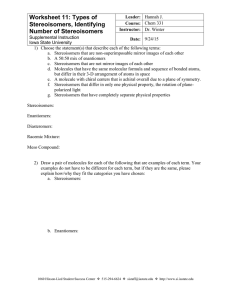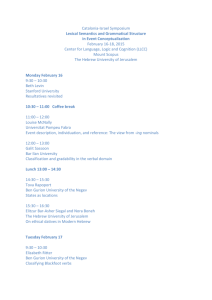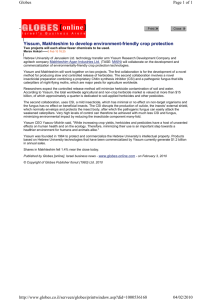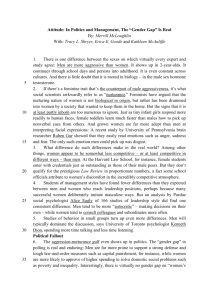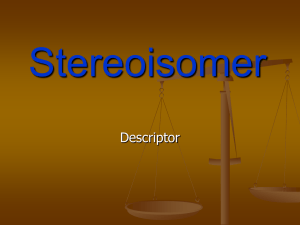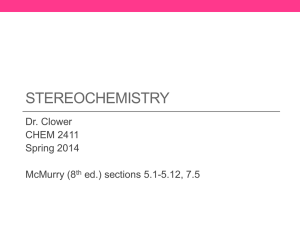News Release
advertisement
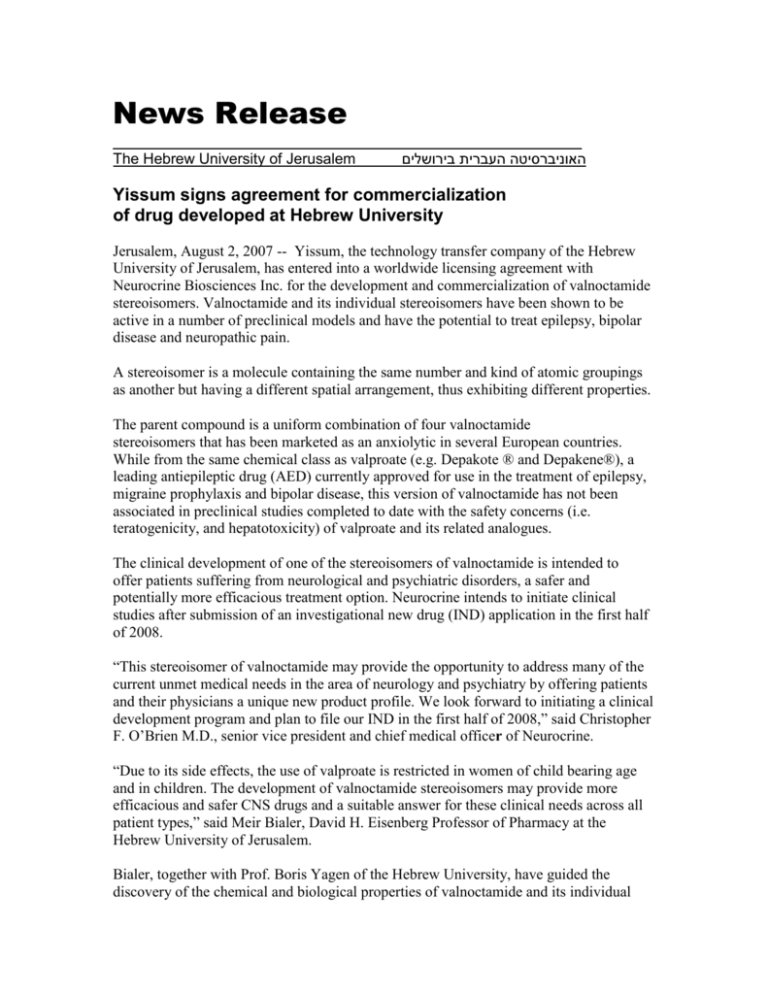
News Release ________________________________________________________ The Hebrew University of Jerusalem האוניברסיטה העברית בירושלים Yissum signs agreement for commercialization of drug developed at Hebrew University Jerusalem, August 2, 2007 -- Yissum, the technology transfer company of the Hebrew University of Jerusalem, has entered into a worldwide licensing agreement with Neurocrine Biosciences Inc. for the development and commercialization of valnoctamide stereoisomers. Valnoctamide and its individual stereoisomers have been shown to be active in a number of preclinical models and have the potential to treat epilepsy, bipolar disease and neuropathic pain. A stereoisomer is a molecule containing the same number and kind of atomic groupings as another but having a different spatial arrangement, thus exhibiting different properties. The parent compound is a uniform combination of four valnoctamide stereoisomers that has been marketed as an anxiolytic in several European countries. While from the same chemical class as valproate (e.g. Depakote ® and Depakene®), a leading antiepileptic drug (AED) currently approved for use in the treatment of epilepsy, migraine prophylaxis and bipolar disease, this version of valnoctamide has not been associated in preclinical studies completed to date with the safety concerns (i.e. teratogenicity, and hepatotoxicity) of valproate and its related analogues. The clinical development of one of the stereoisomers of valnoctamide is intended to offer patients suffering from neurological and psychiatric disorders, a safer and potentially more efficacious treatment option. Neurocrine intends to initiate clinical studies after submission of an investigational new drug (IND) application in the first half of 2008. “This stereoisomer of valnoctamide may provide the opportunity to address many of the current unmet medical needs in the area of neurology and psychiatry by offering patients and their physicians a unique new product profile. We look forward to initiating a clinical development program and plan to file our IND in the first half of 2008,” said Christopher F. O’Brien M.D., senior vice president and chief medical officer of Neurocrine. “Due to its side effects, the use of valproate is restricted in women of child bearing age and in children. The development of valnoctamide stereoisomers may provide more efficacious and safer CNS drugs and a suitable answer for these clinical needs across all patient types,” said Meir Bialer, David H. Eisenberg Professor of Pharmacy at the Hebrew University of Jerusalem. Bialer, together with Prof. Boris Yagen of the Hebrew University, have guided the discovery of the chemical and biological properties of valnoctamide and its individual stereoisomers. Bialer is a leader in the discovery of antiepileptic agents and has authored over 190 publications in the area of pharmacokinetics, antiepileptics and CNS drugs. “We are delighted with this first-ever cooperative agreement with Neocrine,” said Nava Swersky-Sofer, president and CEO of Yissum. “We congratulate Professors Bialer and Yagen on the fruits of their research and we are proud of the confidence shown by Neurocrine in the valnoctamide stereoisomers.” According to IMS Health, sales of valproate derived branded and generic products exceeded $1.5 billion in the U.S. alone for 2006. With indications possible in therapeutic categories ranging from neurology (epilepsy, migraine pain, and neuropathic pain) to psychiatry (bipolar disorder), commercialization of a stereoisomer of valnoctamide provides the opportunity to access markets accounting for more than $15 billion in drug sales (Med Ad News, 2006) and in excess of 50 million patients (Mattson Jack Group, 2007) on a worldwide basis. Neurocrine Biosciences, Inc. is a product-based biopharmaceutical company focused on neurological and endocrine diseases and disorders. The product candidates address some of the largest pharmaceutical markets in the world, including insomnia, anxiety, depression, endometriosis, irritable bowel syndrome, pain and diabetes.
